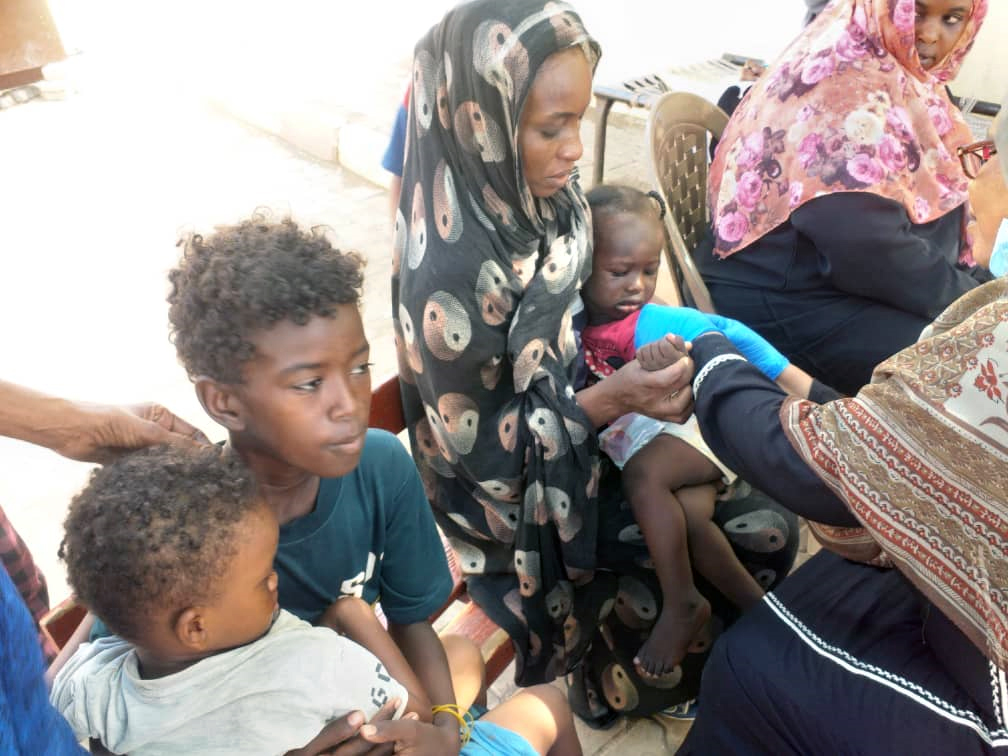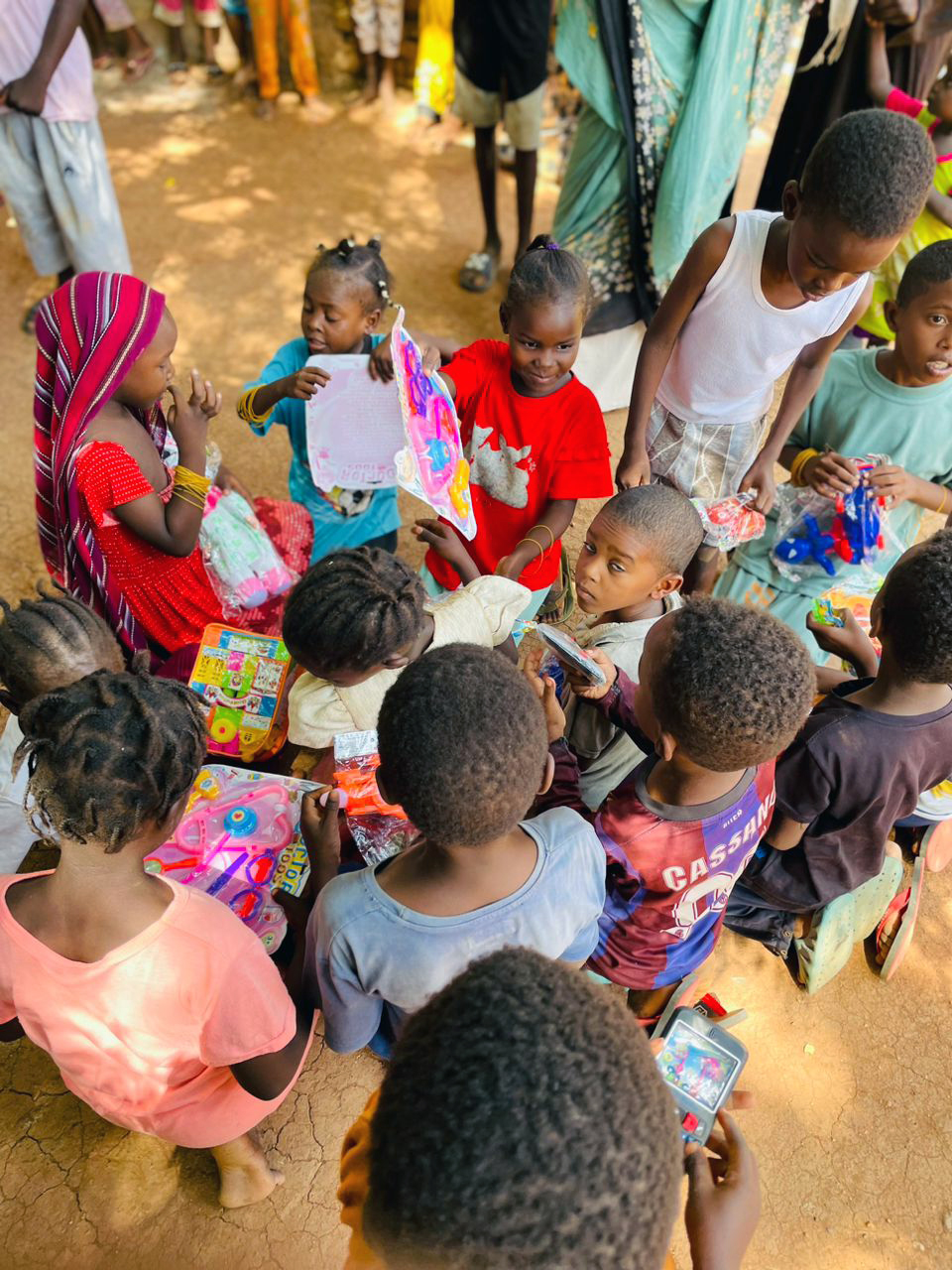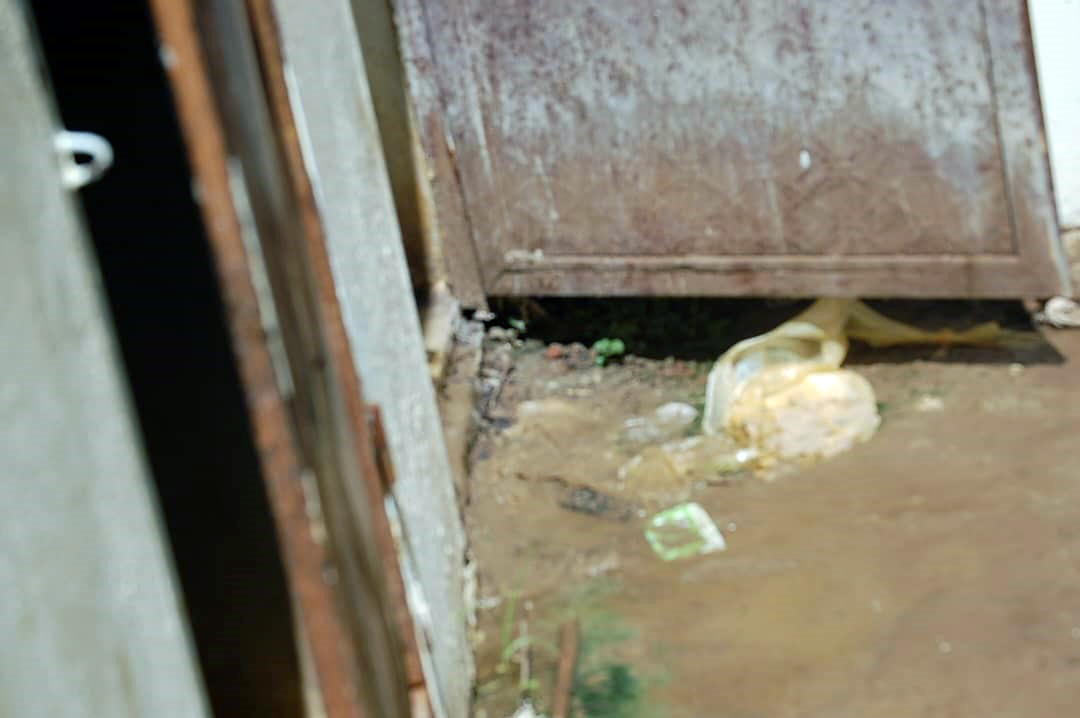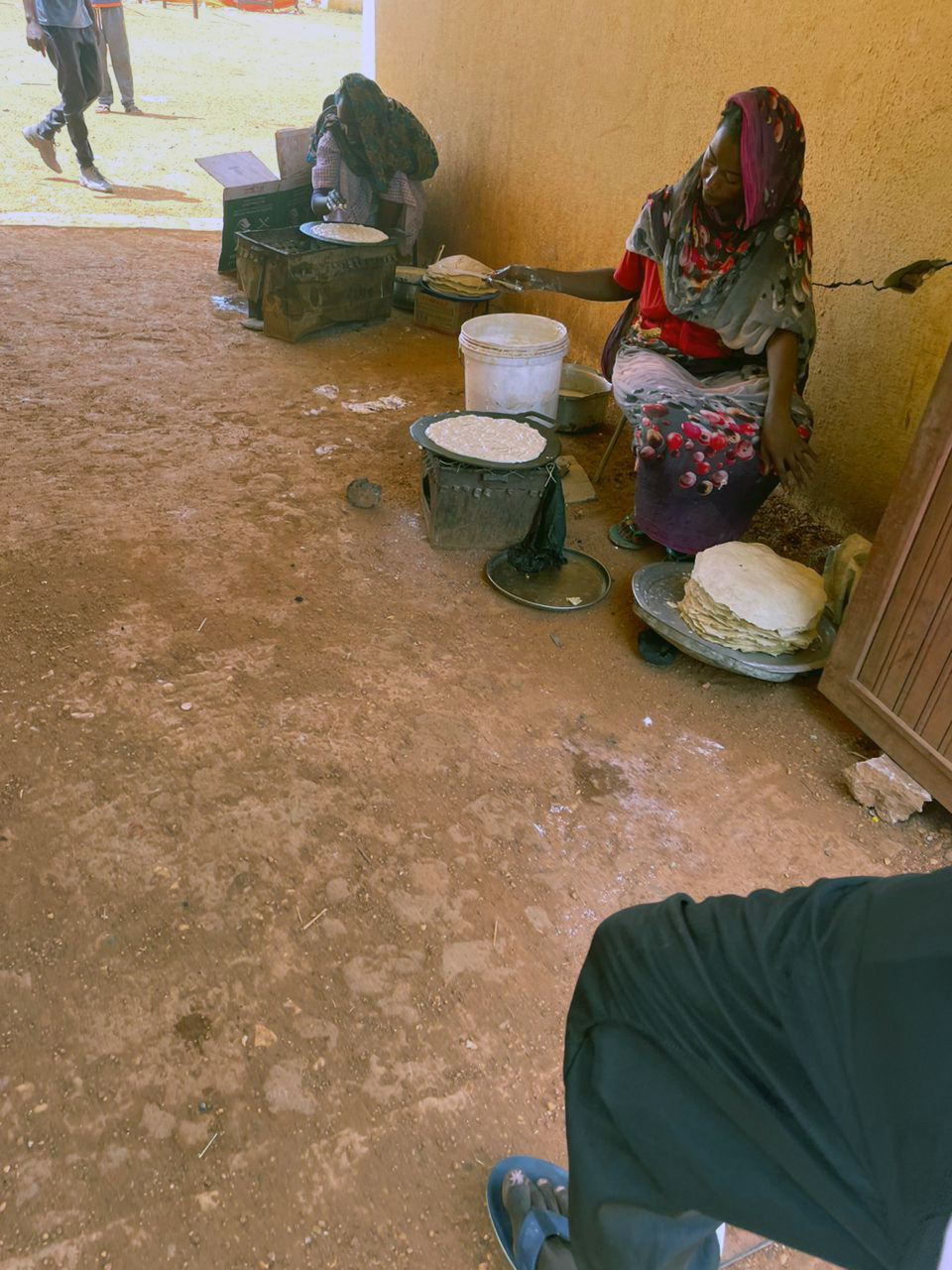
Displaced People in Medani Describe Shelter Conditions as Catastrophic
moatinoon - Gezira State
Displaced individuals and volunteers have described the conditions of displaced shelters in Medani as "catastrophic," especially with the spread of diseases such as dengue fever, cholera, and malaria, coupled with the absence of life-saving medicines. They criticized the passive stance of the state and urged organizations to pay attention to the dire conditions in the shelters and play their role.
One displaced woman, residing in the "Zat al-Nataqain" school in Medani, Gezira State, stated that they sleep on old mattresses, worn-out clothes, or even mats and cardboard boxes due to the lack of a healthy environment. She added that in addition to this, the displaced endure the suffering of those with chronic diseases such as diabetes, cancer patients, and malnourished children, given the scarcity of meals. She condemned these conditions, saying, "There is complete silence from the responsible authorities in the state, and they provide no support or attention." She called on organizations to pay attention to their dire conditions and fulfill their role.
Another displaced woman said, "We suffer from the lack of a healthy environment. The school where we reside is full of dirt, weeds, snakes, and scorpions that we found in the center, and more than one displaced person has been bitten with no antivenom available." She emphasized the absence of some necessary medicines and pointed out that many schools are dilapidated and need environmental rehabilitation.
Speaking to "Citizens," despite our requests for organizations that come to us to address the bathrooms and some classrooms, it has been in vain. Initiatives owners find the cost high. The displaced need water, food, blankets, tents, pesticides, and the provision of motors, tanks, and barrels.
Musaab, a volunteer, stated that despite our contributions to some centers, officials try to limit our activities and place obstacles in front of initiatives and organizations. He explained, "The state government has tried more than once to close some schools that we opened for the displaced, but we rejected their request."
He told "Citizens" that there are many shelters in Medani, and its challenging to enumerate them. Many people reside in places like "Arab School," where around 73 families, approximately 412 displaced individuals, are staying. This is in addition to other schools like "Al-Nasr, Zat al-Nataqain, Al-Shuhada Al-Dabbaghah, Layla Ahmed Saeed, Special Needs School, Electronic Education, and others," with a lack of volunteer capacity and the exclusion of government institutions for voluntary organizations in the state.
Continuing to speak to "Citizens," at the same time, the state supports specific centers such as "Al-Zahraa, Al-Shaimaa, and Huntoub." Many displaced individuals have been forced to stay with families despite the difficult economic situation that Sudanese people are experiencing. He emphasized that most families in Medani host more than one or two families, a situation that organizations do not pay attention to.
Some displaced individuals rely on the goodwill of nearby villages such as "Al-Sharif Al-Hindi, Al-Shakabah," and others.
Our informant described the situation of displaced shelters in Medani as "catastrophic," especially with the spread of diseases such as "dengue fever, cholera, and malaria" and the lack of life-saving medicines without intervention from the state health ministry, which stands idly by.




